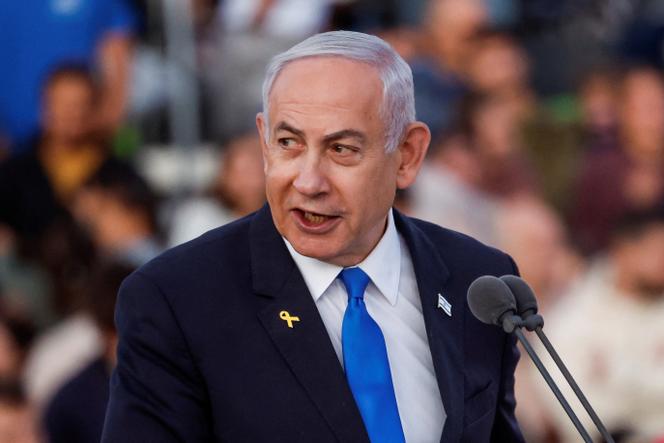


Israeli Prime Minister Benjamin Netanyahu on Tuesday, November 26, recommended his cabinet approve a United States-brokered ceasefire agreement with Lebanon's Hezbollah, setting the stage for an end to nearly 14 months of fighting linked to the ongoing war in the Gaza Strip.
Israel stepped up its bombardment of Lebanon in the hours leading up to the cabinet meeting, killing at least 23 people, according to local authorities. The military also issued a flurry of evacuation warnings – a sign it aims to keep pummeling Hezbollah in the final hours before any ceasefire takes hold.
In a televised statement, Netanyahu said he would present the ceasefire proposal to cabinet ministers later Tuesday, when they are expected to vote on it. He listed a series of accomplishments against Israel's enemies across the region in recent months. He said a ceasefire with Hezbollah would further isolate Hamas in Gaza and would allow Israel to turn its focus to Iran Hezbollah's backer and Israel's biggest threat in the region. He vowed to strike Hezbollah hard if it violates the agreement.
"If Hezbollah breaks the agreement and tries to rearm, we will attack," he said. "For every violation, we will attack with might."
It was not immediately clear when the ceasefire would go into effect, and the exact terms of the deal were not released. The deal does not affect Israel's war against Hamas in Gaza, which shows no signs of ending.
Lebanese officials have said Hezbollah also supports the deal. If approved by all sides, the deal would be a major step toward ending the Israel-Hezbollah war that has inflamed tensions across the region and raised fears of an even wider conflict between Israel and Hezbollah's patron, Iran.
The deal calls for a two-month initial halt in fighting and would require Hezbollah to end its armed presence in a broad swath of southern Lebanon, while Israeli troops would return to their side of the border. Thousands of Lebanese troops and UN peacekeepers would deploy in the south, and an international panel headed by the United States would monitor all sides' compliance.
But implementation remains a major question mark. Israel has demanded the right to act should Hezbollah violate its obligations. Lebanese officials have rejected writing that into the proposal. Israel's Defense Minister Israel Katz insisted on Tuesday that the military would strike Hezbollah if the UN peacekeeping force, known as UNIFIL, doesn't provide "effective enforcement" of the deal.
Even as Israeli, US, Lebanese and international officials have expressed growing optimism over a ceasefire, Israel has continued its campaign in Lebanon, which it says aims to cripple Hezbollah's military capabilities.
An Israeli strike on Tuesday leveled a residential building in the central Beirut district of Basta – the second time in recent days warplanes have hit the crowded area near the city's downtown. At least seven people were killed and 37 wounded, according to Lebanon's Health Ministry.
Three people were killed in a separate strike in Beirut and three in a strike on a Palestinian refugee camp in southern Lebanon. Lebanese state media said another 10 people were killed in the eastern Baalbek province. Israel says it targets Hezbollah fighters and their infrastructure.
The evacuation warnings covered many areas, including parts of Beirut that previously had not been targeted. The warnings, coupled with fear that Israel was ratcheting up attacks before a ceasefire, sent residents fleeing. Traffic was gridlocked, and some cars had mattresses tied to them. Dozens of people, some wearing their pajamas, gathered in a central square, huddling under blankets or standing around fires as Israeli drones buzzed loudly overhead.
Hezbollah, meanwhile, kept up its rocket fire, triggering air raid sirens across northern Israel. Israeli military spokesman Avichay Adraee issued evacuation warnings for 20 buildings in Beirut's southern suburbs, where Hezbollah has a major presence, as well as a warning for the southern town of Naqoura where UNIFIL is headquartered. UNIFIL spokesperson Andrea Tenenti told the Associated Press that peacekeepers will not evacuate.
Other strikes hit in the southern city of Tyre, where the Israeli military said it killed a local Hezbollah commander. The Israeli military also said its ground troops clashed with Hezbollah forces and destroyed rocket launchers in the Slouqi area on the eastern end of the Litani River, a few kilometers from the Israeli border.
